The Ultimate Guide to Cannabis Equipment Maintenance
In the world of cannabis cultivation, your equipment is your best friend. Keeping it in pristine condition isn't just about prolonging its lifespan;...
4 min read
 Team GreenBroz
:
11/11
Team GreenBroz
:
11/11
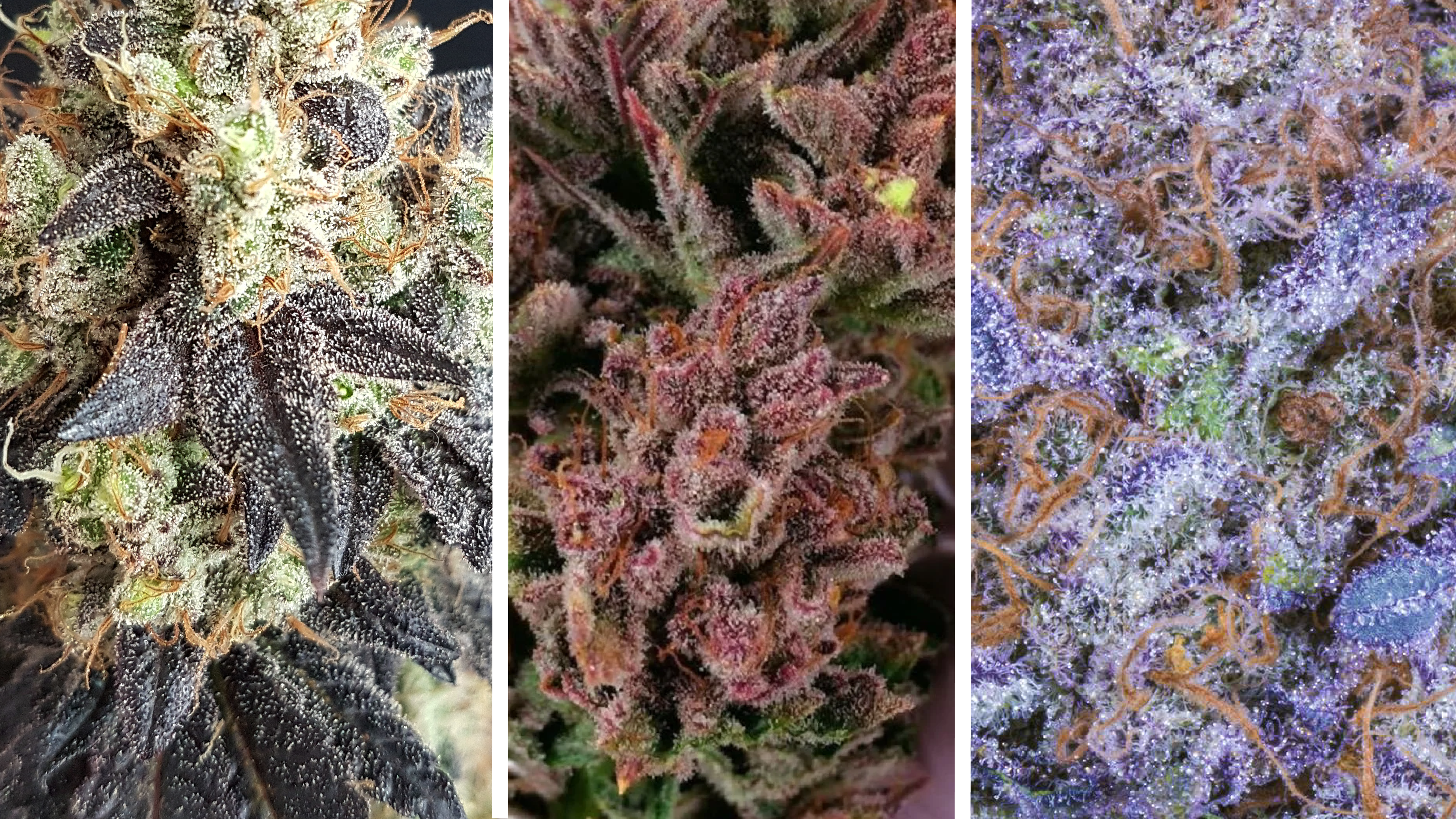
In the world of cannabis cultivation, the kaleidoscope of colors that weed plants can exhibit is truly fascinating. From vibrant red hairs to deep blue strains, the variety is endless. This guide will delve into the mesmerizing realm of colorful weed. Exploring the nuances of blue weed strains, dark purple varieties, and the mysterious allure of red-haired weed strains.
Weed buds come in various colors and saturations based on the ratio of certain pigments in its flowers. The most common pigments responsible for the stunning hues are chlorophyll, carotenoids, and anthocyanins. These compounds not only contribute to the visual appeal of the plants but also play a role in their growth and development.
Chlorophyll is what makes weed plants green, actually it makes all plants green. Its the chemical inside of cannabis, hemp and all other plants that helps convert the suns rays into nutrients and energy for the plant.
Carotenoids are tetraterpene pigments that are responsible for the yellows, orange, reds and purple. They are natural antioxidents and give marijuana flowers there respective yellow, amber and purple hues. Carotenoids are responsible for protecting the cannabis bud and other flowers during photosynthesis. They prevent a harmful photodynamic reaction and also aid in the flowering of weed buds and other plants.
Anthocyanins provide the marijuana flower and cannabis plant leaves the deep reds, purples and blue pigments. They belong to a group of plant-based chemicals called flavonoids. This pigments is incredibly strong and a little goes along way for cannabis strains.
These four plant-based compounds give weed its natural colors. The different ratios of these plant chemicals give weed strains there unique hue profiles. Often times these colors define the names for a given cannabis strain.
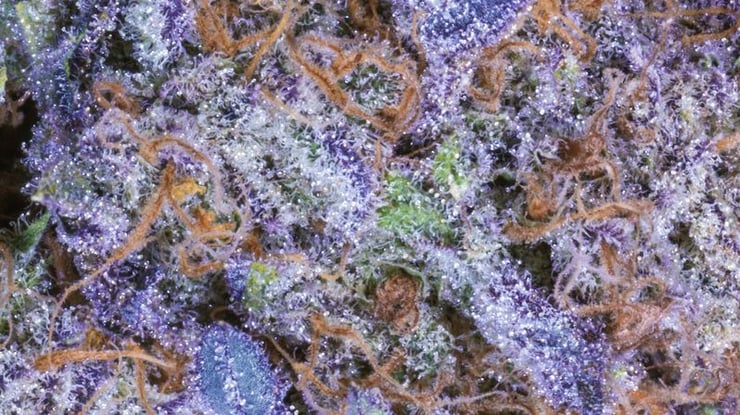
Blue weed strains have gained popularity for their unique appearance and distinct flavor profiles. high levels of anthocyanins, the same pigments found in blueberries and grapes, give these strains there blue hues. Blue cannabis strains captivate the eye while delivering calming and full-body relaxing effects. These blue color strains are usually Indica dominant hybrids and help with chronic pain.
Popular cannabis strains that are blue in hue:
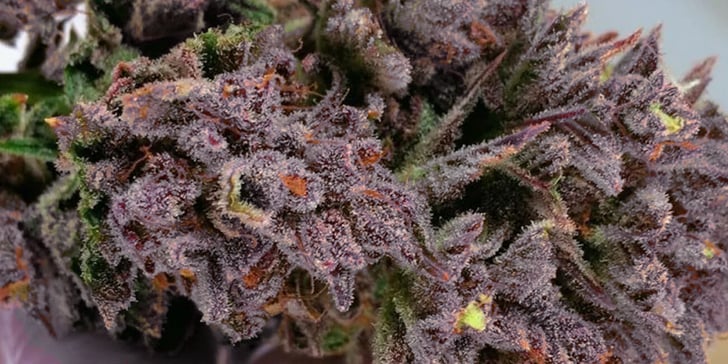
If blue strains captivate with their cool tones, dark purple weed strains evoke a sense of mystery and sophistication. The deep purple hues result from a combination of anthocyanins and other pigments. These strains offer a visually stunning experience known for their relaxing and sedative effects. Weed with purple hairs have gained the reputation for being exotic and fruity.
Dark weed strains and purple colors are a sign of a more exotic strain. Cannabis growers have only recently began to grow plants for these hues. These deep purple and dark blue strains of weed have become more and more popular. These darker tones of weed have even gotten darker even black weed strains have begun to sprout up in cannabis communities.
Popular dark purple marijuana strains:
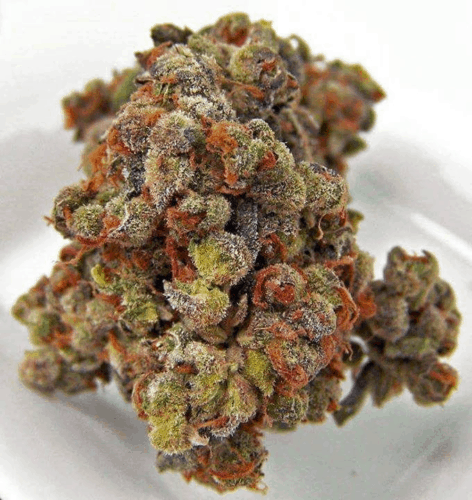 |
| honestmarijuana.com |
Red hairs on weed plants add a fiery touch to the spectrum of colors. The intensity of the red hue varies among strains, creating a captivating visual contrast. Weed with red hairs are famous for their energizing effects and vibrant appearance. Red hairs on weed showcase the plant's ability to produce intense, warm tones.
Popular red weed strains:
Among the red-haired weed strains, Mexican Red Hair stands out for its distinct characteristics. This strain, native to Mexico, boasts a fiery red hue and a spicy, earthy flavor. Its energizing effects make it a favorite among those seeking a creative boost.
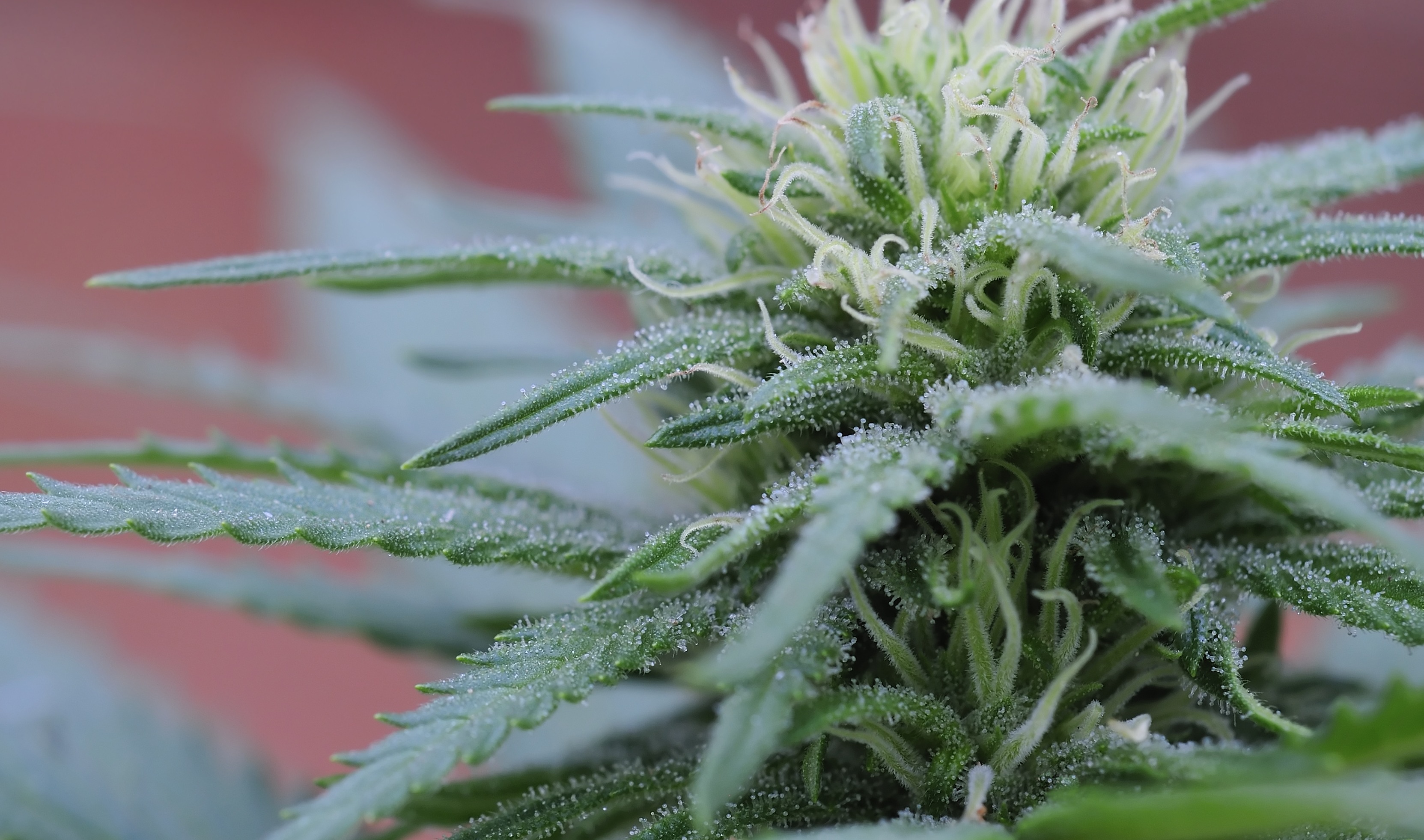
Weed hairs, technically known as pistils, serve a crucial role in the plant's reproductive process. However, their diverse colors have also become a defining feature for enthusiasts and cultivators. From orange to red to white, these hairs contribute to the overall visual spectacle of the plant.
Monitoring the hairs or pistils of a weed plant is a common way that growers determine if a plant is ready to harvest. Cannabis cultivators use magnifying glasses or jeweler lenses to inspect the hues and colors of the hairs. Monitoring the pistils helps determine what flowering phase cannabis flowers are in.
Traditionally a weed plant with white hairs indicates the beginning and immature stages of plant development cycle. White hairs on marijuana plants indicate first step in the flower stages of a plant.
Growers specifically cultivate certain strains for their abundant orange hairs, although these features are common in all cannabis strains. Strains with orange pistils and hairs often exhibit citrusy terpene profiles. The combination of visual appeal and a refreshing flavor makes these strains a delightful choice for cannabis connoisseurs.
Popular orange weed strains:
What causes weed to have different colors?
Are colorful strains less potent than green strains?
Do colorful strains have different flavors?
Can I grow colorful weed at home?
What is the significance of anthocyanins in weed?
Are there blue strains with high CBD content?
How do weed hairs affect the plant's potency?
Can the color of weed indicate its effects?
In the vast landscape of cannabis strains, the diverse colors add an artistic touch to an already intricate plant. From the calming blues to the seductive purples and the fiery reds, each strain tells a unique story. As you explore the world of colorful weed, remember that the true beauty lies not just in the hues but in the multifaceted experiences each strain offers. So, whether you're drawn to the calming blues or the invigorating reds, there's a colorful strain waiting to elevate your cannabis journey.
Never miss a blog posting or exclusive shop deal!

In the world of cannabis cultivation, your equipment is your best friend. Keeping it in pristine condition isn't just about prolonging its lifespan;...

In Humboldt County's green expanses, Jonah Carrington is changing the cannabis game with the GreenBroz Model G Precision Grinder. From his Santa...

Cannabis has come a long way, from black market only to decriminalization, and being legalized in one form or another is just about every state. The...